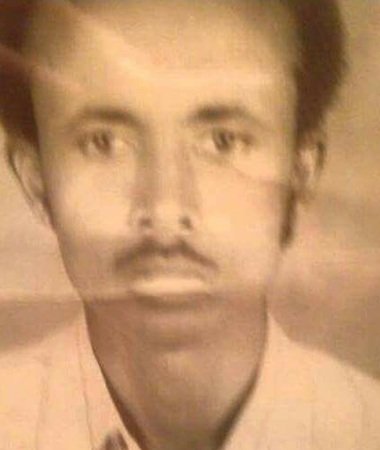By Mohamed Rage Hassan
Somali poets often engage with philosophical themes and undertake profound social inquiry. In his poem Dabo-Huwan, the renowned poet Hadrawi offers a sharp critique of neoliberalism and the effects of globalization. He contends that the modern pursuit of material satisfaction has eroded the moral fabric of Somali society. According to Hadrawi, the excessive focus on individual needs in contemporary life has led to the abandonment of long-standing cultural values such as endurance, harmony, mutual trust, honesty, unity, and a profound sense of communal love.
Undoubtedly, the world is a place of profound trouble—not only evident in personal and social suffering but also in the absence of a universal morality to restrain human actions. Unlike animals, who act on instinct, humans often harm one another knowingly and systematically; the ongoing genocide in Gaza serves as a stark example of this moral collapse. In response to such a fractured world, several philosophers have metaphorically longed to be birds as a way of escaping the burdens of human existence.
Jean-Jacques Rousseau, disillusioned with modern life, idealized birds for their innocence, freedom, and natural harmony, qualities he believed civilization had corrupted. Arthur Schopenhauer, viewing life as driven by blind, insatiable will, saw in the image of a bird a symbolic release from endless suffering. Rainer Maria Rilke used birds as metaphors for spiritual transcendence and instinctive joy, offering a contrast to the heaviness of human self-awareness. Friedrich Nietzsche, too, invoked birds—especially eagles and doves—as symbols of strength, freedom, and life-affirming creativity. For each, the bird represents a longing for a purer, freer, and less destructive mode of being.
This analysis explores how Abdi Ali Wayd, a Somali songwriter who passed away at a young age, expressed a desire to escape the harsh realities of life—realities shaped not only by external conditions but also by human malice and sabotage. In his work, Abdi longs to become a bird, symbolizing a life above worldly struggles. His choice reflects a deeper philosophy: birds embody joy, harmony, and innocent love. They sing freely, live in unity, and coexist without revenge or betrayal—an ideal contrast to the human condition he sought to transcend. The song says;
Hadimada dadkiiba
Halis igu ahaatoo
Huri maayo ruuxii
Hami iyo dhibaatee
Naftu waxay ka hadhi wayday
Hawlaha aduunkoo
Habka nolosha aadamaha
Hagar lagama waaye
Waxaan ku hindisoodaa
Hodor inan ahaadee
Halka geedka ugu dheer
Laamaha u hoydoo!
Laamaha u hoydoo!
Himirtoo bislaatiyo
Hoobaanta cuna’oo.
The songwriter emotionally aspires to live above the treetops, seeking freedom from the burdens imposed not only by his environment but, more significantly, by the people around him. His longing reflects a broader human tendency: those disillusioned by the cruelty of the world often idealize the bird—rather than any other creature—as a symbol of peace and escape. Through critical reflection and sociological observation, Abdi recognized that people are often not invested in others’ well-being; instead, they are more likely to harm or sabotage than to offer unconditional love. This insight is not a fabricated narrative but one echoed throughout history. Even in the life of Prophet Muhammad (PBUH), betrayal came not only from non-believers but also from within the Muslim community. Figures like Abdullahi ibn Ubayy ibnu Salool, leader of the hypocrites (Munafiqiin), actively undermined the Prophet, revealing how deeply embedded such human tendencies can be.
I am often struck by the shock displayed by leaders who expect unconditional love and support to maintain their power—an expectation that seems deeply misaligned with the realities of political life. Abiy Ahmed, for example, during a tribal conference with the Oromo, emotionally took the microphone, swearing allegiance to his Oromo identity and asking repeatedly, “Maxaad iiga doonaysaan, ood igu haysataan?” (“What do you want from me, what have I done wrong?”). His plea reflected a demand for loyalty that cannot be guaranteed in a world shaped by complex political and social dynamics.
A similar moment occurred with Mohamed Siyad Barre, who, when USC forces surrounded the presidential palace, reportedly opened a window and asked in disbelief why the people were rebelling and not simply continuing with their normal lives. Likewise, President Hassan Sheikh Mohamud, who was once denied the position of Mogadishu mayor, eventually rose to the presidency—yet now faces armed opposition in the same city. One might imagine him asking himself the same question: “Why do they oppose me? Why can’t they just live in peace?”
President Mustafe Cagjar expressed a comparable sentiment during a public meeting in Nairobi. He reminded his clan of the infrastructure projects he had delivered and questioned their dissatisfaction, indirectly referencing his shared lineage with former leader Abdi Iley. He asked, “You didn’t oppose Abdi Iley—what do you want from me?” What Mustafe failed to acknowledge, however, is the drastically different political context: unlike Abdi Iley’s oppressive regime marked by terror and mass killings, the current environment is free from such systemic violence. His comparison overlooked the fact that opposition may now arise from a different set of political context and democratic set up—not tribal loyalty or fear.
In conclusion, for those who assume leadership in the Somali political landscape, it is important to temper expectations: do not anticipate unconditional admiration, loyalty, or affection. Such sentiments are rare, and the world does not function through universal love or acceptance. Support is often driven by personal or political interest rather than genuine allegiance. Even loyalty from one’s own sub-clan is typically conditional—sustained only as long as their perceived interests are being advanced. Effective leadership, therefore, requires a realistic understanding of these dynamics rather than reliance on emotional appeals or assumed loyalty.
Mohamed Rage Hassan
Email: moraage30@gmail.com
————-
Mohamed Rage is an independent researcher based in Hargeisa, Somaliland.


Leave a Reply